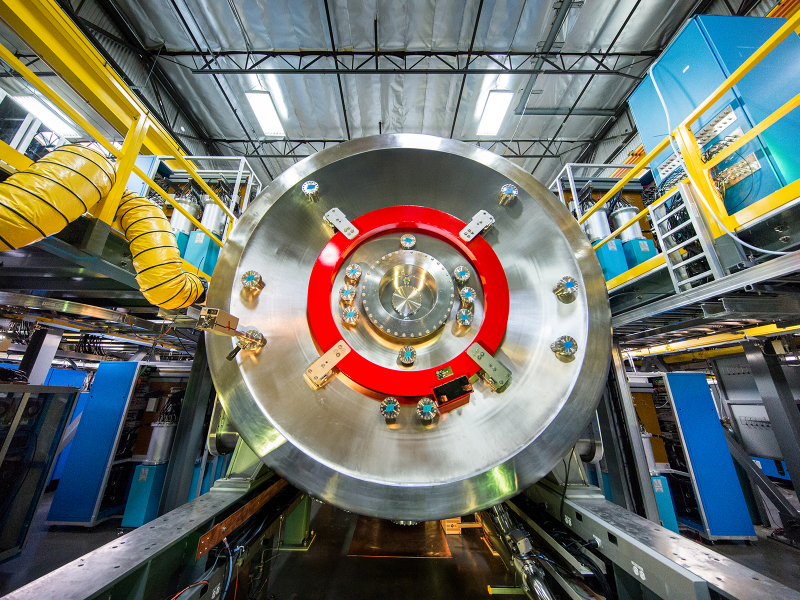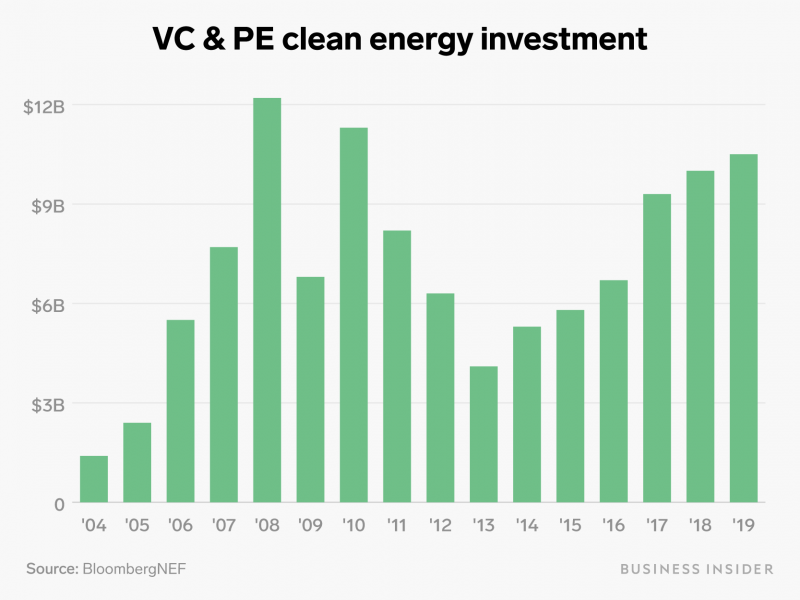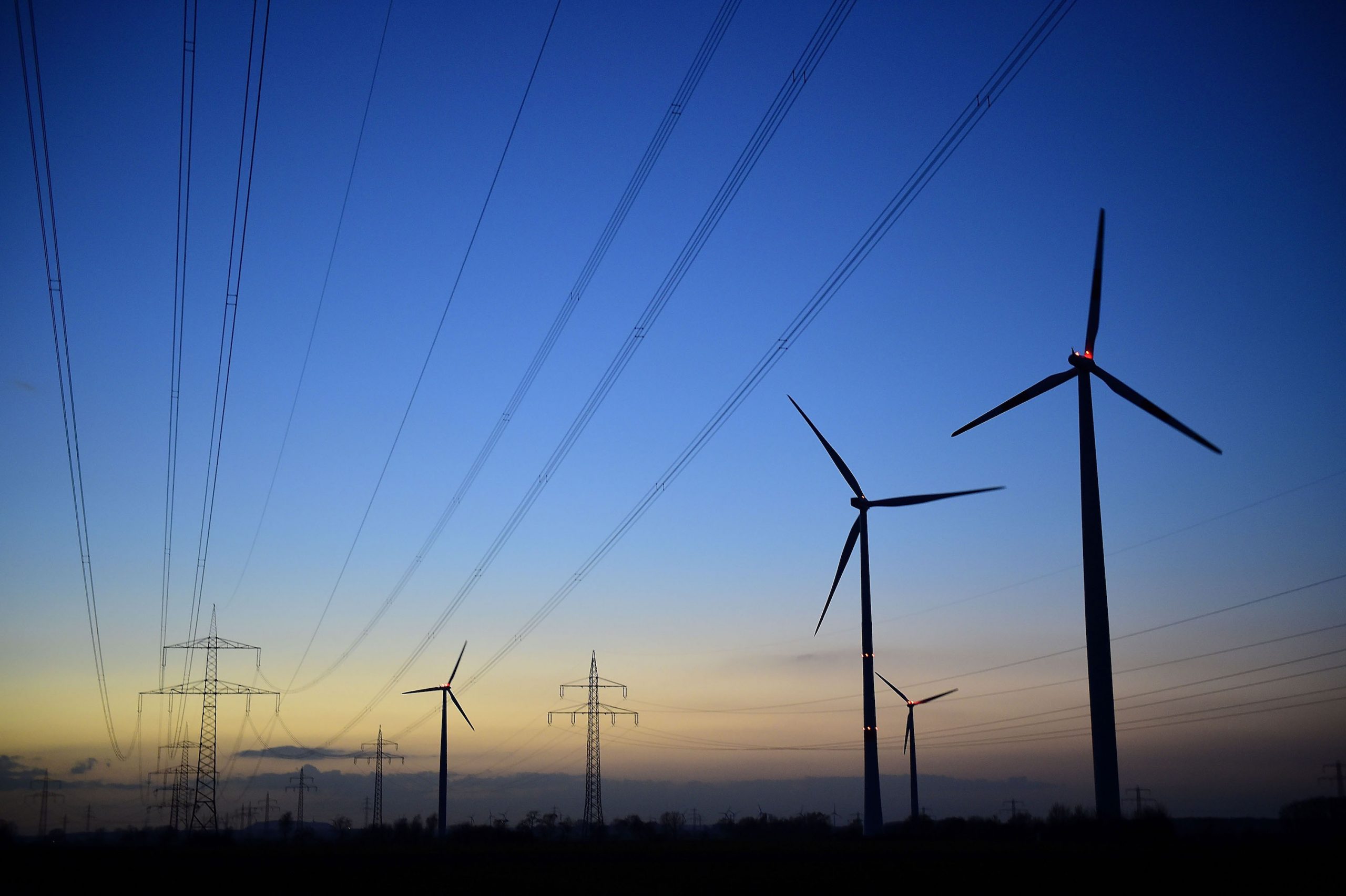Hello, and welcome to Power Line, a weekly clean-energy newsletter from Business Insider.
I’m Benji Jones, a science-turned-energy reporter based in our New York office. I collected baseball-sized apple snails as a kid and did my high-school history fair project on global warming. I haven’t changed much since then.
Here’s what you need to know:
- Want to get Power Line in your inbox every Friday? Sign up here, if you haven’t already.
- Most of our coverage is available exclusively to BI Prime subscribers. If you’re looking for a discount on a subscription to BI Prime, click here.
- Do you have any story tips or feedback? Shoot me an email at [email protected].
Introducing … Power Line!
I’m thrilled to share the very first installment of Power Line, our new weekly newsletter focused on clean energy. It will come out around midday on Fridays.
What's it all about? In the face of climate change, the energy industry is going through a massive overhaul. Corporate giants are trying to decarbonize. Electric vehicles are replacing gas guzzlers. Startups are pursuing new energy sources.
In other words: There's a lot going on in the business of clean energy. And whether or not you're considering buying a Tesla, all of that change will affect you, assuming you use electricity.
Power Line - and our new energy reporting, more broadly - exists to cover and contextualize this transition through a business lens. In short, the beat is the business of clean energy.
It's new for us, so we're just gearing up. As always, please send along whatever feedback you have on this newsletter or our coverage.
Let's get to it!
The top clean-energy startups

On Monday, we published a list of the top 21 clean-energy startups, ranked by their most recent post-money valuations.
- There were only five unicorns - companies valued at more than $1 billion.
- Why is that? One source said it's because clean energy companies don't produce "networks of users," which are required to generate buzz.
- To no surprise, many of the most valuable companies make batteries destined for EVs or consumer tech. (FYI: One top investor told me he thinks batteries are a terrible investment.)
- But in the No. 1 place ... a fusion-energy startup, TAE Technologies, which is backed by Google's parent company, Alphabet. If you're not familiar with fusion energy, I'm not surprised. It's complicated. Check out this story (no paywall), which has some background.
Methods: I used data from the platforms PitchBook and Crunchbase and reached out to most of the companies for more up-to-date info.
In other startup-list news … the research firm Cleantech Group released its flagship report on this year's top 100 startups on Thursday.
- The list is compiled using financial data from the firm's database, i3, in addition to input from 80 industry experts and analysts.
- Nearly half of the startups are in the "power and energy" sector, while others are filed into categories like food and agriculture or materials and chemistry.
- This year, a large chunk of the energy startups make batteries, smart-grid technology, or smart-building technologies.
- You can download the full report here.
Top clean-energy investors
OK, so we're into lists this week. I feel good about it.
We took a look at the most active private equity and venture capital investors in the clean energy space, based on deals in 2019.
- Well, well, well … Big Oil accounted for 4 of the top 10 positions. Shell was No. 1, with 9 deals last year.
- Is that a surprise? Not really, when you consider that oil and gas giants are rebranding to energy giants and making sizable commitments to clean energy. Plus, they know better than anyone where the industry is headed (hint: it's not towards fossil fuels.)
- Other top positions were filled by big names in clean energy finance like Breakthrough Energy Partners, an investor coalition led by Bill Gates, and Energy Impact Partners.
Bonus! Here are the top clean-energy investors by dollar amount in 2019, according to BloombergNEF (BNEF), which we didn't include in our story.
- Alberta Investment Management Corp ($1.6 billion)
- Public Investment Fund of Saudi Arabia ($1 billion)
- Amazon ($675 million)
- Abu Dhabi Investment Authority ($412 million)
- GIC ($412 million)
So, how much did all those investors spend?

It depends on who you ask. Here are three figures for private investment in clean energy for 2019.
- $10.5 billion in private equity and venture capital, according to BNEF
- $9.7 billion in venture capital, according to PitchBook
- $35.2 billion in venture and corporate venture capital in cleantech, excluding deals above $350 million, according to Cleantech Group
The bottom line: Clean energy won big in 2019, no matter what data you're looking at.
For some, investments really paid off
Let's talk about the hedge fund Lansdowne Partners. It manages a $221-million clean-energy fund, which saw astonishing gains in 2019 on the tune of 37%, according to an HSBC hedge fund report. For the record, 8% was the average across all hedge funds last year.
Why did it do so well? The fund manager gave us three reasons:
- 2018 was a bad year. Two investments tanked, pulling the whole fund down.
- Climate change, of course! It's given the renewable energy industry a strong tailwind. Especially wind companies. No, really.
- Renewables are now cheaper than carbon energies in much of the world.
What smart people told us this week

Per Lekander, energy fund manager at Lansdowne Partners: Wind is a better investment than solar. "I should probably be more bullish on solar, but I'm not. I'm way more bullish on wind."
Sameer Reddy, partner at Energy Impact Partners: A "fundamental paradigm shift" is coming in the way consumers think about electricity. People are becoming more energy conscious, which is great news for startups like Arcadia and Ecobee that give customers more control over their energy usage.
Jules Besnainou, director of Cleantech Group: Four major trends are shaping the energy industry.
- The rise of public pressure, fueled by climate change
- A host of mega-corporations are committing to pollute less. (Check out the interview I did with the chief executive of the Spanish oil giant Repsol, which recently committed to going carbon neutral by 2050.)
- To meet those commitments, companies are cooperating with startups.
- An increasing share of foreign investment in clean tech is heading towards European startups.
4 big stories I didn't cover
- The world's largest asset manager, BlackRock, is moving away from Fossil Fuels (New York Times)
- Microsoft made an ambitious pledge to become "carbon negative" by 2030. Axios' Amy Harder reports that the software giant is also "supporting House Republicans' more modest efforts on the matter."
- A whopping 76% of new power capacity in 2020 will come from solar and wind energy, according to the U.S. Energy Information Administration.
- Volkswagen will be the largest EV maker by 2030 (Greentech Media). Relatedly: Today, Reuters reported that the automotive giant is set to buy 20% of the Chinese battery maker Guoxuan.
Finally, here are this week's top deals
- Arrival, an EV startup, raised $111 million from Hyundai and Kia, according to PitchBook
- Agilyx, one of the most valuable clean-energy startups, raised $10.7 million in private equity from undisclosed investors, according to PitchBook.
- Pearl Certification, an energy efficiency certification startup, raised $6 million from undisclosed investors, according to Pitchbook.
- Rebound Technologies, a refrigeration startup, raised $5 million in a deal led by Clean Energy Ventures and Skyview Ventures, according to PitchBook.
- Mixergy, a thermal energy startup, raised $4.7 million Foresight Williams Technology and Centrica, according to Cleantech Group's i3 platform.
That's it! Have a great long weekend.
- Benji

